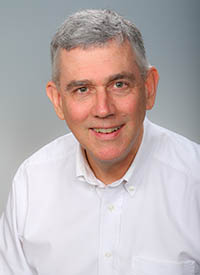**please note: Clinton Andrews will be replacing Stuart Shapiro in the panel.
New York Times columnist and author Nicholas Kristof will join a multidisciplinary panel of Rutgers experts from the Bloustein School, the Rutgers School of Social Work, and the Rutgers School of Communication and Information to discuss how and why the United States is declining on the Social Progress Index.
The virtual panel, “Why is Quality of Life Falling in the U.S.?” will be held on Tuesday, November 17 at 12:00 p.m. The event is free and open to the public; register at https://go.rutgers.edu/ru20-kristof to have the Zoom link emailed.
The Social Progress Index offers a rich framework for measuring the multiple dimensions of social progress, benchmarking success, and catalyzing greater human well-being. Creating a society with opportunity for all citizens remains an elusive goal that many nations have failed to achieve.
Despite its immense wealth, military power, and cultural influence, the United States ranks 28th, having slipped from 19th in 2011. The newest data—released in early September—also find that out of 163 countries assessed worldwide, the United States, Brazil, and Hungary are the only ones in which people are worse off than when the index began in 2011. And the declines in Brazil and Hungary were smaller than America’s.
The index, inspired by the research of Nobel-winning economists, collects 50 metrics of well-being — nutrition, safety, freedom, the environment, health, education, and more — to measure quality of life. These experts will examine the metrics where the U.S. scored lowest, the structural problems that have led to this point, and how the choices our communities and elected officials make can reverse this decline in the years ahead.
Cosponsored by the Edward J. Bloustein School of Planning and Public Policy, the Rutgers School of Communication and Information, and the Rutgers School of Social Work, the event has been designated as the Ruth Ellen Steinman Bloustein and Edward J. Bloustein Memorial Lecture at the Bloustein School and the Blanche Grosswald Endowed Lecture at Rutgers School of Social Work.
REGISTER AT https://go.rutgers.edu/ru20-kristof
Panelists:
Nicholas D. Kristof, Columnist and two-time Pulitzer Prize winner, The New York Times

Nicholas Kristof has been a columnist for The New York Times since 2001. He grew up on a farm in Oregon, graduated from Harvard, studied law at Oxford University as a Rhodes Scholar, and then studied Arabic in Cairo. He was a longtime foreign correspondent for The New York Times and speaks various languages.
Mr. Kristof has won two Pulitzer Prizes for his coverage of Tiananmen Square and the genocide in Darfur, along with many humanitarian awards such as the Anne Frank Award and the Dayton Literary Peace Prize. With his wife, Sheryl WuDunn, he has written several books, most recently “A Path Appears” (September 2014) about how to make a difference. Their previous book, “Half the Sky,” was a No. 1 best seller. Their latest book, “Tightrope: Americans Reaching for Hope,” was published in January 2020.
Mr. Kristof, who has lived on four continents and traveled to more than 150 countries, was The New York Times’s first blogger and has millions of followers across social media platforms.
Juan D. Gonzalez, Richard D. Heffner Professor of Communications and Public Policy and Professor of Professional Practice, Journalism and Media Studies, School of Communication and Information, Rutgers University

Juan González is the Richard D. Heffner Professor of Communications and Public Policy and a professor of professional practice in journalism and media studies at Rutgers. For more than forty years he has been one of the nation’s best-known Latino journalists and public intellectuals. A staff columnist for New York’s Daily News from 1987 until 2016, he is also the long-running co-host of Democracy Now, the morning news that airs on 1,500 public and community TV and radio stations throughout the US and Latin America.
His columns and investigative reports have garnered numerous distinctions, including two George Polk awards for commentary. A founder and past president of the National Association of Hispanic Journalists, González was the first Latino to be named to the Society of Professional Journalists’ New York Journalism Hall of Fame and is a Fellow of the New York Academy of History.
He has authored five books, among them, Harvest of Empire: A History of Latinos in America, and News for All the People: The Epic Story of Race and the American Media.
Lenna Nepomnyaschy, Associate Professor, School of Social Work, Rutgers University

Dr. Nepomnyaschy’s research interests are broadly focused on how poverty, inequality, and social policies impact child and family health and well-being. One line of work examines the impact of social policies, particularly related to fathers and child support, on the well-being of families and children. Another line of work examines socioeconomic and racial/ethnic disparities in child health and development. Her current work is being funded by the William T. Grant Foundation and explores the extent to which father involvement can reduce disparities in outcomes between children in lower and higher-income families and the role of economic and social policies in promoting or inhibiting low-income fathers’ involvement with their children. Her previous work has been funded by the Foundation for Child Development and the Research Program on Childhood Hunger through the University of Kentucky Center for Poverty Research and the U.S. Food and Nutrition Service.
Clinton Andrews, Professor and Associate Dean for Research; Director, Rutgers Center for Green Building and the Environmental Analysis and Communications Group, Edward J. Bloustein School of Planning and Public Policy, Rutgers University

Clinton Andrews is a professor of urban planning, director of the Rutgers Center for Green Building and the Environmental Analysis and Communications Group, and associate dean for research the Bloustein School. He was educated at Brown and MIT in engineering and planning, and worked previously in the private sector and at Princeton University. He teaches urban planning and quantitative methods courses, and performs research on how people use the built environment. He publishes both scholarly and popular articles and his books include Humble Analysis: The Practice of Joint fact-Finding, Regulating Regional Power Systems, and Industrial Ecology and Global Change. He recently completed service as co-editor of the Journal of Planning Education and Research. He is a member of the American Institute of Certified Planners and a licensed Professional Engineer. Andrews is a Fellow of AAAS, a winner of IEEE’s 3rd Millenium Medal, president-elect of the IEEE Society on Social Implications of Technology, and an avid experimenter with new methods for collecting field data in urban settings.
Dr. Andrews will be replacing Stuart Shapiro, who is unable to participate due to a family emergency.
Stuart Shapiro, Professor and Associate Dean of the Faculty, Edward J. Bloustein School of Planning and Public Policy, Rutgers University

Stuart Shapiro joined Rutgers University in 2003. Prior to that, he received a PhD in Public Policy from Rutgers and worked at the Office of Management and Budget under Presidents Clinton and George W. Bush.
Dr. Shapiro teaches classes in economics, public policy, and politics. He has written three books and published numerous articles in law reviews, political science journals, public administration journals, and several others. He writes op-eds for The Hill and occasionally other news sites and has been quoted in the popular press extensively.
